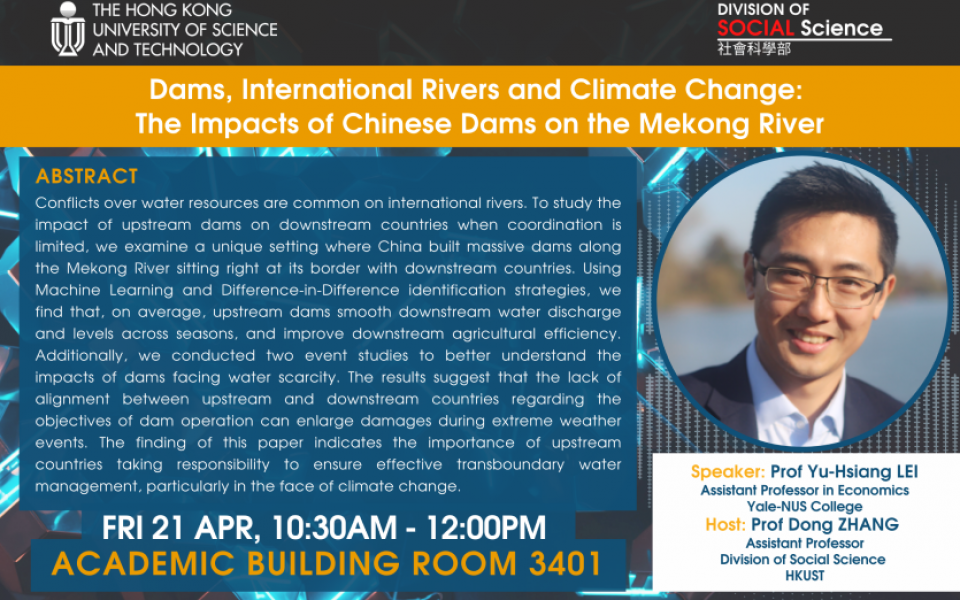Abstract:
Conflicts over water resources are common on international rivers. To study the impact of upstream dams on downstream countries when coordination is limited, we examine a unique setting where China built massive dams along the Mekong River sitting right at its border with downstream countries. Using Machine Learning and Difference-in-Difference identification strategies, we find that, on average, upstream dams smooth downstream water discharge and levels across seasons, and improve downstream agricultural efficiency. Additionally, we conducted two event studies to better understand the impacts of dams facing water scarcity. The results suggest that the lack of alignment between upstream and downstream countries regarding the objectives of dam operation can enlarge damages during extreme weather events. The finding of this paper indicates the importance of upstream countries taking responsibility to ensure effective transboundary water management, particularly in the face of climate change.
Speaker Biography:
Lei Yu-Hsiang is an Assistant Professor of Economics at Yale-NUS College and holds a concurrent courtesy appointment at the National University of Singapore. His research interests span the fields of development economics, public economics and political economy. Lei's work mainly focuses on producing empirically grounded evidence to understand the impacts of public policies. His research has been published in prestigious economics journals such as the American Economic Journal: Applied Economics, Journal of Public Economics, and Journal of Development Economics. Lei obtained his PhD in Economics and MSc in Econometrics and Mathematical Economics from the London School of Economics, and his undergraduate degree from the National Taiwan University.
Host: Prof Dong ZHANG, Assistant Professor, Division of Social Science, HKUST
